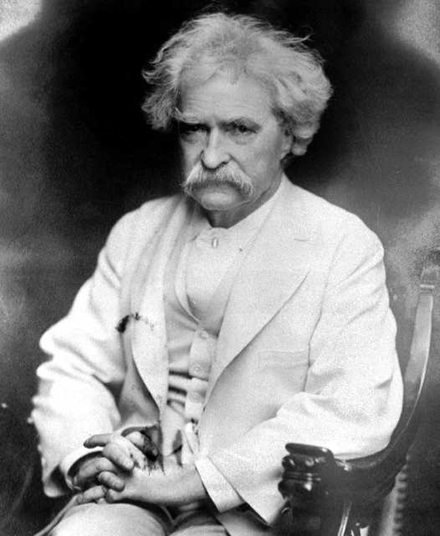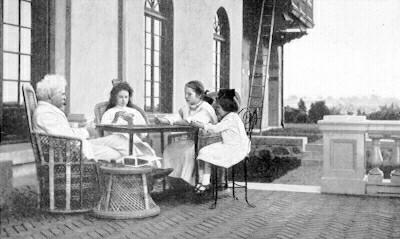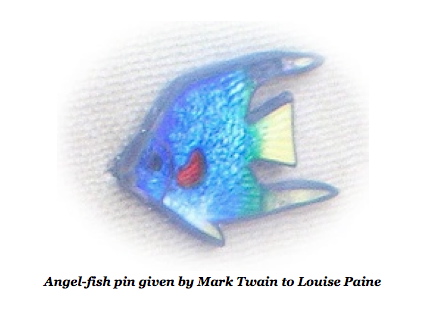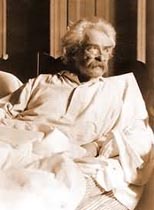Republished by Blog Post Promoter
 Mark Twain (Samuel Clemens) died in 1910. It seems very likely and plausible (if you know about reincarnation) that he was reincarnated as Kurt Vonnegut in 1922. The resemblance between the two writers is uncanny in their events of their respective lives, there physical appearance, personal philosophies, writing and styles and by the fact that they were both prodigious, life-long smokers. The resemblance and affinity between Clemens / Vonnegut was not lost on Kurt Vonnegut as you will discover the in following lecture.
Mark Twain (Samuel Clemens) died in 1910. It seems very likely and plausible (if you know about reincarnation) that he was reincarnated as Kurt Vonnegut in 1922. The resemblance between the two writers is uncanny in their events of their respective lives, there physical appearance, personal philosophies, writing and styles and by the fact that they were both prodigious, life-long smokers. The resemblance and affinity between Clemens / Vonnegut was not lost on Kurt Vonnegut as you will discover the in following lecture.
Kurt Vonnegut delivered the annual Clemens Lecture at the Mark Twain House in Hartford, Connecticut, An edited version of which we present here:
On Twain, Lincoln, Imperialist Wars and the Weather by Kurt Vonnegut
“Shock and awe.
What are the Conservatives doing with all the money and power that used to belong to all of us? They are telling us to be absolutely terrified, and to run around in circles like chickens with their heads cut off. But they will save us.
They are making us take off our shoes at airports. Can anybody here think of a more hilarious practical joke than that one? Smile, America. You’re on Candid Camera.
And they have turned loose a myriad of our high tech weapons, each one costing more than a hundred high schools, on a Third World country, in order to shock and awe human beings like us, like Adam and Eve, between the Tigris and Euphrates Rivers.
The other day I asked the former Yankees pitcher Jim Bouton what he thought of our great victory over Iraq, and he said, ‘Mohammed Ali versus Mr. Rogers.’ What are Conservatives? They are people who will move Heaven and Earth, if they have to, who will ruin a company or a country or a planet, to prove to us and themselves that they are superior to everybody else, except for their pals.
They take good care of their pals, keep them out of jail – and so on. Conservatives are crazy as bedbugs. They are bullies.
Shock and awe.
Class war? You bet.
 They have proved their superiority to admirers of Abraham Lincoln and Mark Twain and Jesus of Nazareth by, with an able assist from television, making inconsequential our protests against their war.
They have proved their superiority to admirers of Abraham Lincoln and Mark Twain and Jesus of Nazareth by, with an able assist from television, making inconsequential our protests against their war.
What has happened to us? We have suffered a technological calamity.
Television is now our form of government.
On what grounds did we protest their war? I could name many, but I need name only one, which is common sense.
Be that as it may, construction of the Mark Twain Museum will sooner or later be resumed. And I, the son and grandson of Indiana architects, seize this opportunity to suggest a feature which I hope will be included in the completed structure, words to be chiseled into the capstone over the main entrance.
Here is what I think would be fun to put up there, and Mark Twain loved fun more than anything. I have tinkered with something famous he said, which is:
‘Be good and you will be lonesome.’ That is from ‘Following the Equator.’OK? So envision what a majestic front entrance the Mark Twain Museum will have someday. And imagine that these words have been chiseled into the noble capstone and painted gold:
BE GOOD AND YOU WILL BE LONESOME MOST PLACES,
BUT NOT HERE, NOT HERE.
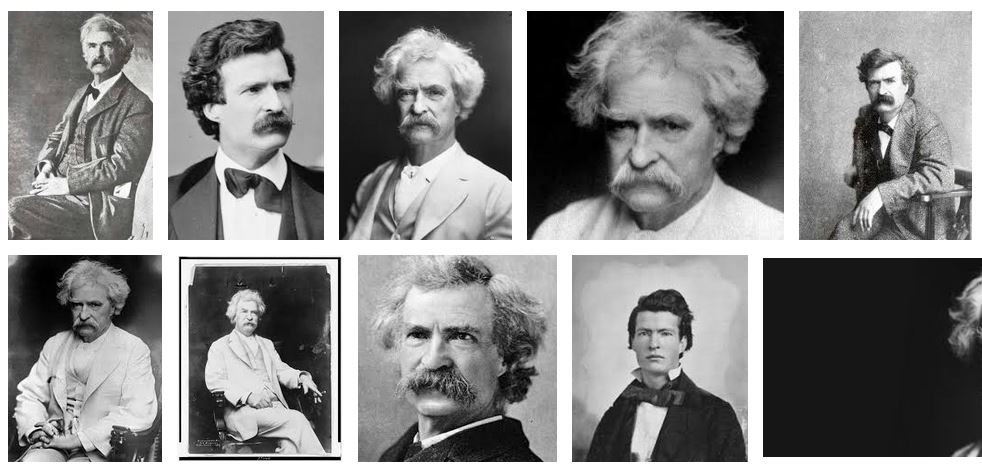 One of the most humiliated and heartbroken pieces Twain ever wrote was about the slaughter of one hundred Moro men, women and children by our soldiers during our liberation of the people of the Philippines after the Spanish American War. Our brave commander was Leonard Wood, who now has a fort named after him. Fort Leonard Wood.
One of the most humiliated and heartbroken pieces Twain ever wrote was about the slaughter of one hundred Moro men, women and children by our soldiers during our liberation of the people of the Philippines after the Spanish American War. Our brave commander was Leonard Wood, who now has a fort named after him. Fort Leonard Wood.
What did Abraham Lincoln have to say about such American Imperialist wars? Those are wars which, on one noble pretext or another, actually aim to increase the natural resources and pools of tame labor available to the richest Americans who have the best political connections.
And it is almost always a mistake to mention Abraham Lincoln in a speech about something or somebody else. He always steals the show. I am about to quote him.
Lincoln was only a Congressman when he said in 1848 what I am about to echo. He was heartbroken and humiliated by our war on Mexico, which had never attacked us.
We were making California our own, and a lot of other people and properties, and doing it as though butchering Mexican soldiers who were only defending their homeland against invaders weren’t murder.
What other stuff besides California? Well, Texas, New Mexico, Utah, Nevada, Arizona, and parts of Colorado and Wyoming.
The person Congressman Lincoln had in mind when he said what he said was James Polk, our President at the time. Abraham Lincoln said of Polk, his President, our armed forces’ Commander and Chief:
Trusting to escape scrutiny by fixing the public gaze upon the exceeding brightness of military glory, that attractive rainbow that rises in showers of blood – that serpent’s eye, that charms to destroy, he plunged into war.’
Holy smokes! I almost said, ‘Holy shit!’ And I thought I was a writer!
Do you know we actually captured Mexico City during the Mexican War?
Why isn’t that a national holiday? And why isn’t the face of James Polk up on Mount Rushmore, along with Ronald Reagan’s?
What made Mexico so evil back in the 1840’s, well before our Civil War, is that slavery was illegal there. Remember the Alamo?
My great grandfather’s name was Clemens Vonnegut. Small world, small world.
This piquant coincidence is not a fabrication.
Clemens Vonnegut called himself a ‘Freethinker,’ an antique word for Humanist. He was a hardware merchant in Indianapolis.
So, 120 years ago, say, there was one man who was both Clemens and Vonnegut. I would have liked being such a person a lot. I only wish I could have been such a person tonight.
I claim no blood relationship with Samuel Clemens of Hannibal, Missouri. ‘Clemens,’ as a first name, is, I believe, like the name ‘Clementine,’ derived from the adjective ‘clement.’ To be clement is to be lenient and compassionate, or, in the case of weather, perfectly heavenly.”

